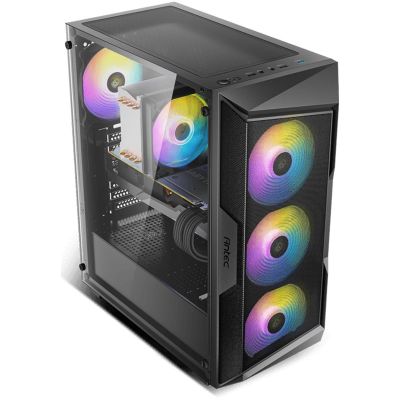As gamers, we're obsessed with getting the best graphics we can for our budget, but when it comes to the huge range of graphics cards (not to mention integrated graphics!) available, it can become confusing for new gamers looking to get the best products they can. That's why we put together our comprehensive 'Shop by graphics card' guide to help you understand what it all means and how to make informed choices when it comes to graphics.
What do the series mean?
GTX 16 series, RTX 30 series, RTX 40 series. What does it all mean?
To put it simply, the RTX 40 series is the most recent generation of graphics cards. NVIDIA recently brought out the SUPER series, so if having the latest and greatest is important to you, you're going to want the 4070 SUPER, 4070 Ti SUPER, 4080 SUPER or 4090 SUPER. The 4070 and 4070 Ti GPUs would generally be considered 'high-end', and the 4080 and 4090 cards would be considered 'ultra high-end', for people who really want the best money can buy.
The 30 series is an older generation of GPU which many gamers still use and get good results from, but the 40-series is built on the latest architecture and offers significant advancements in graphics performance.
The GTX 16 Series offers reliable, budget performance for gaming. GTX used to be NVIDIA's flagship card, but has now been largely replaced by the RTX cards which offer ray tracing (which the GTX-Series doesn't).
What do the numbers mean?
As a general rule of thumb, within a series, the higher the number, the better the performance of the card, as they usually include more vRAM, GPU cores higher speeds and faster memory. The 4090 offers significantly better performance than the 4060, and the 4090 is a significant upgrade on the 3090.
Nvidia or AMD?
Nvidia has long been the go-to choice of the serious gamer, with AMD's Radeon graphics cards offering a good, budget friendly alternative. Whilst it's true that Nvidia does probably still have the edge when it comes to the higher-end performance, for gamers whose budget makes the 4090 unnatainable, the competition is slightly more even-footed as you get to the middle of the pack of both companies offerings. Whichever you choose, you're not going to be disappointed by your systems performance.

